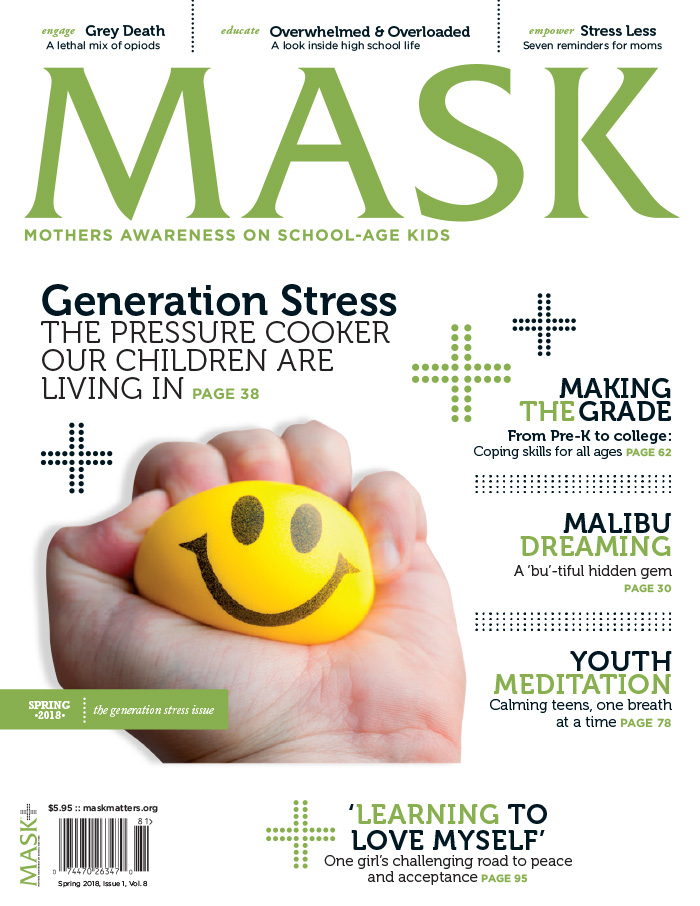
One Toke Over The Line
February 27, 2020
Helping Teens Cope with Stress
March 18, 2020During these uncharted times it is important to help your children deal with their emotions and teach them how to cope. Good parenting starts with self-care. Make sure you model good coping skills for your child. Identify your own emotions, identify your triggers, and engage in active self-care so that you’re not bursting at the seams when it comes time to teach your child how to cope.
Coping with emotions is a key milestone in a child’s developmental stage. For elementary school-aged children, there are some things to keep in mind when teaching them how to cope. In doing so, they’ll be able to cope with intense emotions rather than crying about them. First help your children start to identify their feelings, reminding them that these feelings will pass, and refrain from punishing them for expressing themselves. The key to identifying and tolerating emotions is remembering that emotions are short-lived signals our body sends us to let us know something isn’t quite right with the situation. Teach your child to identify the feeling. Allow them to experience the intense emotion without interfering and “rescuing” them. Remind your child that emotions are short-lived. In the moment, the feeling might be intense, but the intensity and the emotions will pass, and will help them learn to tolerate the feelings.
Finally, teach your child that emotions are signals our bodies and brains send us to alert us – they are essentially an alert system to help us navigate the situation. Positive emotional experiences occur in situations in which people feel loved, cared for and safe. Negative emotional experiences tend to occur in situations where the perceived sense of safety is threatened, situations of loss, grief or the unknown.
It is important to validate your children’s feelings and to reassure them that they are safe, cared for and loved. Actively listen by rephrasing what your child says to you. Don’t rescue them from their feelings; help them tolerate the emotions. Label your feelings for your child until they learn how to do it. Practice deep breathing and mindfulness with your child. Talk about emotions being part of everyday routines. Be patient as your child learns to deal with their feelings.
Here are some conversation starters will help you discuss intense emotions with your child:
“Where in your body do those feelings happen? What kind of sensations do the feelings create?”
“What do you need in situations where your feelings get too big to handle?”
“What are the things that make you feel mad, sad, or scared? What are the things that make you feel happy, surprised or proud?”
Always remember to reassure them that they are safe, cared for and loved.
For more information on stress and for additional strategies check out MASK The Magazine Stress issue:
MASK the Parenting Magazine a quarterly publication providing solutions for Today’s Families.
The parenting manual offering solutions to the modern-day challenges families face. From Pre-K
through College stay up to date on the modern day issues families face.
Are you up to date on the issues your child is facing?
MASK Mothers Awareness on School-age Kids offers parenting solutions for today’s families. MASK tackles important topics – from drugs and alcohol to bullying and Internet safety -and gives students, parents and the community the knowledge and tools to manage these potential challenges.
Subscribe today! https://www.tools4teaching.com/product/mask-the-magazine/
Download and share the MASKmatters app now! Made for children, parents, teachers and in Spanish.
Have solutions at your fingertips
Available free on apple and google play links below
Apple https://apps.apple.com/us/app/maskmatters/id1482305692
Google Play
https://play.google.com/store/apps/details?id=com.maskmatters.maskmattersapp&hl=en_US&gl=US






